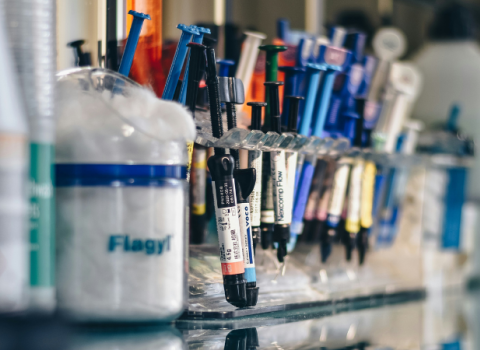Funding
Prosensa NV has agreed an exclusive worldwide collaboration with GlaxoSmithKline for the development and commercialisation of RNA-based therapeutics for Duchenne Muscular Dystrophy (DMD), a severely debilitating inherited neuromuscular disease that affects one in 3,500 newborn boys.
The alliance, established under GSK’s Centre of Excellence for External Drug Discovery includes four RNA-based products intended to treat different subpopulations of patients suffering from DMD.GSK will develop and commercialise Prosensa’s lead compound, PRO051, which treats DMD by skipping exon 51 of the dystrophin gene, resulting in a failure to produce the dystrophin protein, which is necessary for proper muscle function.
GSK’s Neurosciences Medicines Development Centre will progress the further development of PRO051, funding all costs associated with its clinical development. Preparations have begun for a Phase III study which is intended to start in early 2010. In addition, GSK has exclusive options to license three more RNA-based compounds targeting additional DMD exons. One such option includes Prosensa’s second lead compound, PRO044, which targets the skipping of exon 44 and for which Prosensa expects to initiate a Phase I/II study before the end of 2009. In this case, GSK’s option rights will be triggered by a successful completion of this study.
The financial terms include a £16 million upfront payment. Prosensa will receive up to £412 million in milestones payments if all four compounds are successfully developed, and is entitled to royalties on sales.
Hans Schikan, CEO of Prosensa said, “We are delighted by GSK’s commitment to develop and commercialise our promising lead compound, PRO051. This alliance will not only speed-up the further development of PRO051, but will also accelerate the progress of our complementary DMD therapeutics, allowing us to reach a broader patient population.
RNA-based therapeutics, specifically antisense oligonucleotides inducing exon skipping, are among the most promising therapies for DMD.





 A unique international forum for public research organisations and companies to connect their external engagement with strategic interests around their R&D system.
A unique international forum for public research organisations and companies to connect their external engagement with strategic interests around their R&D system.